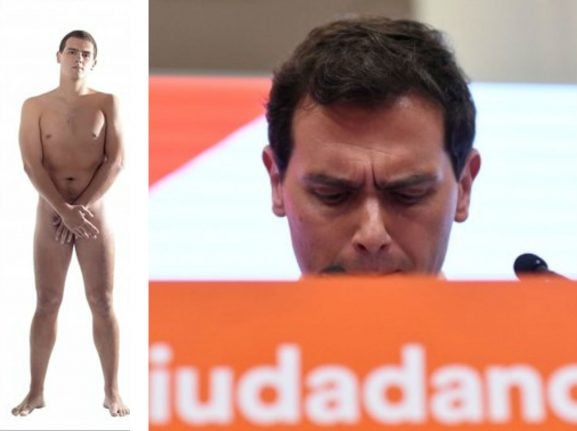But on Monday, the leader of Spain's Ciudadanos, Albert stepped down after the business-friendly party suffered a drubbing in a repeat general election.
The party, which has been rocked by internal divisions over strategy, won just 10 seats in the 350-seat parliament in Sunday's polls which were marked by a surge in support for far-right party Vox, down from 57 seats in the previous ballot in April.

“In coherence with who I am, I don't think it's surprising that I resign today. It's the responsible thing to do,” he said adding he was also stepping down as a member of parliament and abandoning politics.
“The time has come to serve other people, to serve my parents, to serve my daughter who I have spent less time with than I should have,” he added after meeting with his party's executive committee.
Acting Prime Minister Pedro Sanchez's Socialists won the most seats in Sunday's election but once again fell short of an absolute majority in parliament, prolonging months of deadlock.
Several top Ciudadanos figures resigned in the lead up to the election in protest over deals the party struck with upstart Vox to allow it to govern in several regions and cities along with the main opposition Popular Party.
Rivera, 39, had led Ciudadanos since he founded it in 2006 as a regional party in Catalonia which focused on fighting separatism and defending Spanish unity.
He burst onto the Catalan political scene in a breath of fresh air, vowing to fight corruption and posing naked on campaign posters to “lay politics bare”.
The party soared in the polls when it went national in 2014 on a market-friendly, anti-corruption platform which sought to wipe out the traditional left-right divide and it entered parliament the following year.
Rivera, a former water polo player who worked at a bank before entering politics, recently moved the party to the right in an attempt to make Ciudadanos the country's main conservative party, and attacked Sanchez after having failed to form a coalition with him in 2016.
Just 18 months ago, he was being compared to France's Emmanuel Macron and Canada's Justin Trudeau and was feted as kingmaker in parliament and quite possibly as a future prime minister.
READ MORE:




 Please whitelist us to continue reading.
Please whitelist us to continue reading.
Member comments